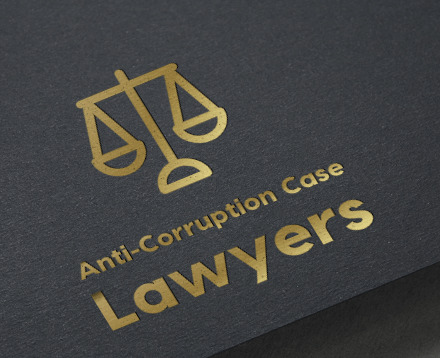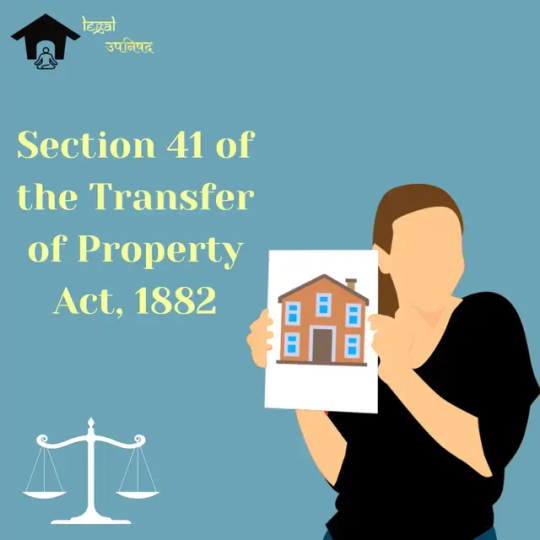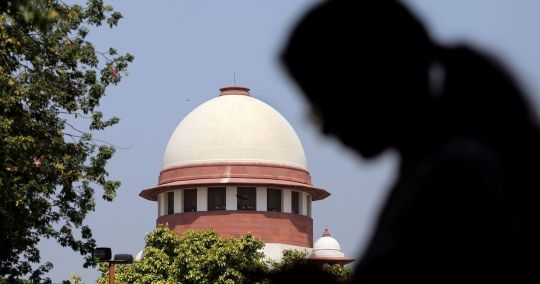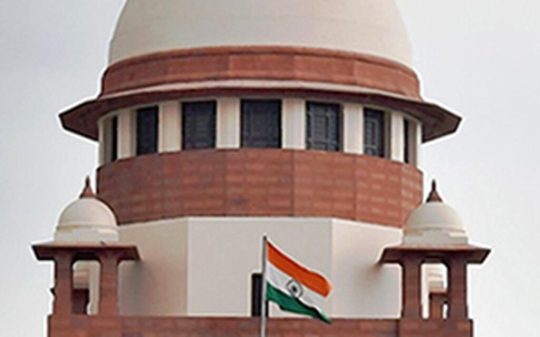#Benami Transact
Text
ஊழல் வழக்குகள்: சிறந்த குற்றவியல் வழக்கறிஞரைக் கண்டறியவும்
Large bribery & corruption case investigation involves risk to protect client from exposure. The exposure can be media & publicity. Our law firm will take care of such matters. Attorneys at Rajendra Law Office ensure confidentiality of your case detail
ஊழல் வழக்குகளுக்கு வழக்கறிஞர்கள்: ஊழலுக்கு எதிராக எங்கள் அரசு கடுமையாக உள்ளது. நிச்சயமாக, இந்தியாவில் அரசு ஊழியர்களுக்கு ஊழல் & லஞ்சம் கொடுப்பது ஐபிசியின் கீழ் தண்டனைக்குரியது மற்றும் அபராதம் விதிக்கக்கூடியது. ஊழல் தடுப்புச் சட்டம் ஊழல், லஞ்சம் மற்றும் அதன் தண்டனை போன்ற குற்றங்களைக் கையாள்கிறது.
தமிழகத்தில் ஊழல் தடுப்பு வழக்குகளை வாதாட சிறந்த வழக்கறிஞரைக் கண்டறியவும்
சென்னையில் ஊழல்…

View On WordPress
#514. Corrupt inducement affecting appointment as liquidator#AB Advocates#advocates For Anti Corruption#Advocates for benami Cases#Advocates for Benami disputes#Advocates for Benami Transaction issues#Advocates for Bribery cases#Advocates for Bribery issues#Advocates for CBI Litigation Cases#Advocates for Corruption cases#Advocates for Money laundering#Advocates for police corruption cases#Advocates in Anna Nagar#anti money laundering and lawyers#anti money laundering attorney jobs#Anti Money laundering compliance#anti money laundering lawyers#Anti-corruption authorities#Anti-Corruption Laws (Amendment) Act#Anticipatory Bail Lawyers#Attorneys for benami Cases#banks and public service commission employees#Benami Advocates#Benami Appeals#Benami Case advocates#Benami disputes#benami Litigation#Benami Litigation Lawyers#Benami Transact#Benami Transactions
0 notes
Text
BENAMI TRANSACTIONS (PROHIBITION) ACT, 1988
In the past few years, we have seen the government major steps to end black money dealings through various measures such as the black money act, Income Disclosure Scheme, demonetization, etc. In this context, the terms ‘Benami property’, ‘Benami Act’, ‘Benami transactions’, etc. have been making headlines for quite some time now.
The word Benami means “without a name”. In simple terms, a Benami…

View On WordPress
#acts#Benami transactions#black money#disclosure#government#Income#knowledge#law#theories#transactions#without a name
0 notes
Text
‘How the Lucknow High Court Upheld the Son’s Claim in a Joint Family Property Dispute: A Landmark Judgement for Inheritance Law’

Saurabh Gupta v. Smt. Archana Gupta & 2 others
FAFO 321/2023
Before Lucknow High Court
Heard by Hon’ble Mr. Justice Arun Kumar Singh Deshwal J
Order
The Court allowed the Injunction application of the appellant restraining respondents from transferring the property in dispute during the pendency of the Civil Suit before Civil Judge Hardoi.
The Court observed that the Court below, while passing the order has not applied his mind despite being a prima facie case, and in such a case protection is necessary against further transferring the property or changing the nature of same, if same is not protected, there are chances the property may be transferred or nature of property may be changed in that case even if the appellant's suit is decreed, then he will suffer irreparable loss and injury.
Background
Present appeal has been filed against the order passed by Civil Judge (S.D.), Hardoi on July25, 2023 in Civil Suit ‘Saurabh Gupta vs Smt. Archna Gupta and others’.
The temporary injunction application was filed by the appellant from restraining the respondent No.1 to transfer the same was rejected.
Facts:
Appellant-Sourabh Gupta filed a Civil Suit for a declaration that he is the co-sharer of 1/4th part of the property in dispute as the property belongs to joint family property because it was purchased by the father of the appellant in the name of his wife Smt Archana Gupta -the respondent no.1.
Respondent no.1 is the house maker and did not have any independent source of income.
The appellant's father purchased the property in dispute from Ram Ratan Gupta on 20.10.86.
The appellant had made construction over that plot, and thereafter, the entire family has been running a business therein, and this complex is also known as R.C. Complex.
In the written statement, respondents have stated that the aforesaid property has been gifted by respondent no.1 to respondent no.2.
Submission of the Counsel of the Appellant
Respondent No.1-Archana Gupta is a homemaker and did not have any independent income, and his father purchased the property in dispute in the name of respondent no.1 (wife), therefore property belongs to the joint family property and not an individual property of the respondent.
Appellant and Respondent no.2, have been jointly running a business on the property.
In the gift deed, respondent no.1 admitted that she is homemaker.
Had she been a working woman she would not have mentioned herself as a homemaker.
Case for granting injunction has not considered by the Court below.
Being joint family property, the appellant is entitled to 1/4 share in the property in dispute, therefore his right should be protected by restraining the respondents from creating any 3rd party's right
Submission of the Counsel of the Respondents
The application u/order 39Rule 1 & 2 is not maintainable as no final relief was claimed in the plaint, which is in nature of permanent injunction.
Observation of the Court
The father of the appellant & husband of Respondent No.1 had purchased the property in the dispute.
There is nothing on record to show that respondent had any independent source of income.
Once a property is purchased by a Hindu husband in the name of his wife, who is homemaker, then the property will be deemed to be purchased by the husband himself from his source unless the contrary is proved.
An application under Order 39 Rule 1 and 2 read with Section 151 C.P.C. is maintainable for the protection of property, If the Court finds protection of the subject matter is necessary, and if protection is not granted, the same may result in irreparable loss to the complainant.
Prohibition of Benami Property Transactions Act, Section 29(b)(iii) prescribes that if the husband purchased the property in the name of his wife or children, then the same will not be said to be Benami property but will be deemed to be purchased by the husband out of his source.
Grant of a temporary injunction is governed by three basic principles, i.e. prima facie case, balance of convenience, and irreparable injury, which must be considered in a proper perspective in the facts and circumstances of the particular case. (Zenith Metaplast Pvt. Ltd. vs State of Maharastra and others; 2009 (10) SCC 388)
The appellant is claiming the declaration of only 1⁄4th share in the property in dispute on the ground that the property belongs to a joint Hindu family.
This Court under Section 114 of Indian Evidence Act may presume the existence of fact that the property purchased by Hindu husband in the name of his spouse, will be the property of family, because in common course of natural event Hindu husband purchases a property in the name of his wife, who is homemaker and does not have any source of income for the benefit of family.
The property is joint Hindu family property and protection of property from transferring to a third party is necessary.
Seema Bhatnagar
#jointfamilyproperty#inheritancelaw#civilsuit#irreparableloss#temporaryinjunction#lucknowhighcourt#firstappealfromorder
1 note
·
View note
Text
The Importance of Linking Aadhaar for Purchasing Property

In an era where technology and digitization are rapidly transforming various aspects of our lives, governments worldwide are embracing innovative solutions to streamline processes and enhance security. In India, the introduction of the Aadhaar system has revolutionized identity verification and has had a significant impact on various sectors. One area where linking Aadhaar has proven to be of great importance is in purchasing property.
➢ Streamlined Identification Process:
Aadhaar, India's unique biometric identification system, has provided a standardized and efficient method for establishing the identity of individuals. By linking Aadhaar to property purchases, the verification process becomes streamlined, reducing paperwork and eliminating the need for multiple identity proofs. This simplification not only saves time for both buyers and sellers but also minimizes the potential for identity fraud and property disputes.
➢ Enhanced Transparency and Accountability:
Linking Aadhaar to property transactions promotes transparency and accountability in the real estate sector. It helps in curbing black money and fraudulent practices, ensuring that transactions are conducted through legal channels. Aadhaar linkage facilitates a trail of ownership, making it easier to track property transactions and identify any suspicious or unlawful activities. This promotes a level playing field and instills confidence among buyers, sellers, and financial institutions involved in the property market.
➢ Safeguarding Against Benami Transactions:
Benami transactions, where a property is held by one person on behalf of another, is a significant concern in the Indian real estate sector. By linking Aadhaar to property purchases, the government aims to curb such transactions and ensure that property owners are accountable for their assets. The Aadhaar linkage enables authorities to verify the actual ownership of a property, preventing the use of proxy names or shell companies to evade legal scrutiny. This step strengthens the overall integrity of property transactions and helps eliminate illicit practices.
➢ Efficient Disbursement of Subsidies and Benefits:
The integration of Aadhaar with property ownership also enables efficient disbursement of government subsidies, benefits, and entitlements. By linking Aadhaar, individuals can easily access schemes such as housing subsidies, tax benefits, and loan facilities. The government can directly transfer funds to the rightful beneficiaries, eliminating intermediaries and reducing the risk of corruption. This ensures that subsidies and benefits reach those in need promptly, fostering a more inclusive and equitable society.
➢ Digital Transformation and Ease of Doing Business:
The Aadhaar linkage aligns with the Indian government's larger vision of a digital India. By digitizing property ownership records and integrating them with Aadhaar, the process of property transactions becomes more seamless and user-friendly. It enables online verification and authentication, reducing the reliance on physical documents. This shift to digital platforms enhances the ease of doing business and promotes the development of a robust digital infrastructure for the real estate sector.
Wrap up:
The Aadhaar system has emerged as a game-changer in the Indian context, and its integration with property purchases brings several benefits for all stakeholders involved. From streamlining identification processes to promoting transparency, accountability, and efficient subsidy disbursement, the importance of linking Aadhaar for purchasing property cannot be overstated. It bolsters the credibility of the real estate sector, reduces the risk of fraud, and contributes to the overall growth and development of the economy. As the Aadhaar ecosystem continues to evolve, it is essential for individuals, buyers, sellers, and government agencies to embrace this technological advancement to unlock its full potential and shape a brighter future for the Indian real estate market.
#Manaprojects#mana#manahomes#macasaemerald#daintreebymana#manacapitol#convertiblehomes#villas#premiumvillas#smarthomes#dreamhome#EcoFriendly#ModernLiving#InspiredByNature#HomeSweetHome#RealEstate#Property
0 notes
Text
What will happen to Physical Shares Certificate after 31st March 2023?
The shares will become worthless. This means that you will not be able to sell them, transfer them, or claim any dividends or other benefits.
The shares may be frozen by the company. This means that the company will not allow you to sell or transfer the shares, and you may not be able to claim any dividends or other benefits.
You may be treated as a Benami holder under the Benami Transactions (Prohibitions) Act, 1988. This means that you may be subject to penalties and fines.
In addition to these consequences, there are a few other things that you should be aware of if you have physical shares certficate:
You will not be able to vote at shareholder meetings. This means that you will not have a say in how the company is run.
You will not be able to benefit from corporate actions such as bonus shares or rights issues. This means that you will miss out on opportunities to increase your shareholding or acquire new shares at a discounted price.
If you have physical shares, it is important to convert them to demat form as soon as possible. This will ensure that you do not lose your investment and that you are able to participate fully in the market.
Here are some of the benefits of converting your physical shares to demat form:
Demat shares are more secure. They are held in electronic form in a depository, which is a regulated entity. This makes them less vulnerable to theft or loss.
Demat shares are more convenient to trade. They can be bought and sold online, which makes it easier for investors to participate in the market.
Demat shares are more efficient. They do not require the physical movement of certificates, which saves time and money.
If you are not sure how to convert your physical shares to demat form, you can contact your broker or a depository participant. They will be able to help you through the process.

0 notes
Text
NSEL Defaulters: Understanding the Controversy and Addressing FAQs
The National Spot Exchange Limited (NSEL) default crisis was one of the biggest financial scandals that rocked India's financial markets in recent times. It involved non-payment of over Rs 5,600 crore by some 24 defaulting parties, who were primarily brokers, traders, and other market participants. The crisis led to the suspension of the exchange's operations, investigations by regulatory authorities, and several legal battles between the defaulters, investors, and the exchange. In this blog post, we aim to provide a comprehensive understanding of the NSEL default crisis and address some common FAQs related to it.
Understanding the NSEL Default Crisis
The NSEL was a spot commodity exchange that offered a platform for trading in various agricultural commodities, such as wheat, sugar, and pulses, among others. The exchange operated under the regulatory purview of the Forward Markets Commission (FMC) and had received approvals from other regulatory bodies, such as SEBI and the Ministry of Consumer Affairs. However, in July 2013, the exchange was hit by a payment crisis, as some of its participants defaulted on their payment obligations. This led to a domino effect, and soon, several other participants started defaulting, leading to a widespread crisis that shook the Indian financial markets.
The primary reason for the crisis was the misuse of the exchange's e-series platform, which allowed investors to trade in commodities without taking physical delivery. Some brokers and traders used this platform to carry out illegal trades, such as circular trading, benami transactions, and false invoicing, among others. These trades were not backed by physical commodities, and hence, when the time came for settling the contracts, the defaulters were unable to fulfill their payment obligations. This led to a chain reaction of defaults and eventually led to the collapse of the exchange's operations.
The crisis had severe implications for various stakeholders, such as investors, brokers, traders, and the exchange itself. Many investors who had invested in the e-series platform lost their money, and several brokers and traders faced bankruptcy. The exchange's operations were suspended, and investigations were launched by various regulatory authorities, such as the SEBI, the FMC, and the Economic Offences Wing (EOW). The crisis also led to several legal battles between the defaulters, investors, and the exchange, which are still ongoing.
FAQs Related to NSEL Default Crisis
Q. Who were the defaulters in the NSEL crisis?
A. The defaulters in the NSEL crisis were primarily brokers, traders, and other market participants who had traded on the exchange's e-series platform. Some of the major defaulters included Mohan India, ARK Imports, NK Proteins, Lotus Refineries, and NCS Sugars, among others.
Q. What was the total amount of money involved in the NSEL crisis?
A. The total amount of money involved in the NSEL crisis was over Rs 5,600 crore.
Q. How did the regulatory authorities respond to the crisis?
A. The regulatory authorities, such as the SEBI, the FMC, and the EOW, launched investigations into the matter and took various measures to address the crisis. The SEBI conducted a forensic audit of the exchange's operations and suspended the trading license of several brokers and traders. The FMC ordered the exchange to suspend its operations and appointed an administrator to oversee its affairs. The EOW registered several FIRs against the defaulters and arrested several individuals in connection with the case.
0 notes
Text
0 notes
Text
How Can I Report Criminal Activities Of Public Servant?
A healthy democracy is attacked at its very core by the evil of corruption. It fosters inequality and poses a significant obstacle to inclusive development. In other words, corruption involves using one's position of power or influence improperly to benefit oneself or others.
Laws Pertaining to Corruption by Public Servants
Indian Penal Code of 1860
According to the Indian Penal Code, a "public servant" is a person employed by the government, an officer in the military, navy, or air force, a police officer, a judge, a member of the Court of Law, or any other local authorities established by a state or federal law.
A public servant who buys or bids on the property without authorization is in violation of Section 169 of the Indian Penal Code. If a public servant breaks the law, they could receive a fine, a prison sentence of up to two years, or both.
The criminal breach of trust by any public servant is covered under the virtue of Section 409 of the Indian Penal Code. The public servant will get a fine and a sentence of life imprisonment or up to 10 years.

The Prevention of Corruption Act of 1988
In addition to the parties covered by the IPC, the term "public servant" also refers to officials working for banks, universities, the Public Service Commission, and cooperative societies that receive government funding.
A public servant who accepts gratification other than his legal salary in exchange for performing official duties or trying to persuade other employees faces a minimum jail sentence of six months, a maximum of five years in prison, and a fine. A public servant is also punished under the act because he used his official power for personal gain and to influence the public illegally.
A public servant who accepts something valuable from someone in his or her official capacity without compensating for it or paying insufficiently for the valuable thing will be punished with a minimum of six months and a maximum of five years in imprisonment and a fine.
Prior approval from the federal or state governments is required to prosecute a public servant.
Benami Transactions (Prohibition) Act of 1988
Except when a person buys property in his wife's or unmarried daughter's name, the Act forbids any benami transaction (purchasing property in the name of another person but not paying for it).
Anyone who engages in a benami transaction is subject to a fine and/or a sentence of up to three years in jail.
Any property that is considered to be benami could be obtained by a designated authority, and no money needs to be paid in the process.
Prevention of Money Laundering Act of 2002
According to the Act, money laundering is committed whenever a person participates in any procedure involving the proceeds of crime and presents those proceeds as untainted property. The term "proceeds of crime" refers to any assets acquired by an individual as a result of criminal activity connected to specific offenses enumerated in the Act's schedule. Only after being accused of committing a scheduled offense may someone be charged with money laundering.
Money laundering is a crime that carries a harsh three - seven years prison sentence and a maximum fine of 5 lakh rupees. If someone is found guilty of a crime under the Narcotics Drugs and Psychotropic Substances Act of 1985, they might face up to a maximum term of confinement of up to ten years.
Procedure followed to Charge Dishonest Public Servants
Under the Indian Penal Code of 1860 and the Prevention of Corruption Act of 1988, the Central Bureau of Investigation (CBI) and the state Anti-Corruption Bureau (ACB) look into cases of corruption.
The Central Vigilance Commission (CVC) is a legislative organization that oversees corruption investigations in government agencies. This department has the authority to decide whether to take any punitive proceedings against a public servant.
An investigating agency can only file charges after receiving the state or federal government's approval. Government-appointed prosecutors carry out the prosecution process in courts.
Special Judges chosen by the federal or state governments preside over all trials conducted according to the Prevention of Corruption Act of 1988.
You can hire a lawyer to report criminal activities of a public servant. If you want to report criminal activities of a public servant in Pune, then a Criminal Lawyer in Delhi can be hired and if you want to report criminal activities of a public servant in Ghaziabad, then a Criminal Lawyer in Ghaziabad can be hired. Similarly, a Criminal Lawyer Delhi can be hired if you want to report criminal activities of a public servant in Delhi.
At Lead India, you can talk to a lawyer. You can obtain free legal advice and ask a legal question online free to lawyers at Lead India.
SOURCE:-
Visit us: — https://www.leadindia.law
Call Us: +91–8800788535
Email: [email protected]
YouTube: — https://www.youtube.com/c/LeadIndiaLawAssociates
Facebook: — https://www.facebook.com/leadindialaw
LinkedIn: — https://www.linkedin.com/company/76353439
Twitter: — https://twitter.com/leadindialaw
Pinterest: — https://in.pinterest.com/lawleadindia
Instagram: - https://www.instagram.com/leadindialawofficial
0 notes
Text
ED claims Rs 100cr changed hands in Delhi liquor scam
Hyderabad: The Enforcement Directorate investigating the Delhi liquor scam on Thursday claimed to have established hawala transactions, cash deposits in excess to liquor sales and benami investments including Rs 1 crore allegedly arranged by BRS MLC K. Kavitha to one of the kingpins in the scam.
The latest chargesheet filed by the ED, for the first time, dragged in the name of Delhi Chief…

View On WordPress
0 notes
Text
Importance of Linking Aadhar for Property Registration

When it was announced that the government would link all Indian properties with Aadhar, the decision was considered a crucial one. This would lead to the creation of a central database of ownership for each and every property. This, in turn, would help in identifying whether a property owner is paying all taxes properly and whether his /her income justifies the ownership of a property. If it doesn’t, then the government has the right to confiscate the property as a benami one. Of course, the entire process of linking all properties with Aadhar would be time-consuming and will require the help of state governments.
Making Aadhar Mandatory
Using Aadhar card for property registration is a strategic move to curb the problem of black money in property deals. Aadhar is an essential proof of identity from opening a bank account, getting a PAN Card to getting an LPG connection. The current government has massive plans to make Unique Identification Authority of India-based transactions mandatory in real estate dealings. All buyers and sellers must have a valid Aadhar number for registration of property. The government is also planning to make amendments to Section 32 and 32A of the Registration Act.
This would mean that any person who presents registration documents to sub-registrar of the state must undergo Aadhar registration. The registration process involves a bio-metric technique where the property is transferred to the buyer after the provision of the Unique ID and other bio-metric details. In the second half of 2017, it was reported that the Aadhar linked registration system was already in action on a pilot basis across many states of India. Local authorities were cross-verifying all proprietorship documents provided through online systems and they were also linking the documents with the unique Aadhar number.
Aadhar To Bring Ease Of Transactions
All sub-registrar services have been linked to Aadhar servers so that it is easy to extract information during property registration. Moreover, as Aadhar is already linked to bank accounts of individuals, it will significantly ease-out the process of Property for Sale in Jodhpur, real estate transactions and securing home loans. However, what does a person do when s/he has lost the Aadhar card or does not have one yet?
Misplaced / Stolen / Not Possessing Aadhar
If you have lost or misplaced your Aadhar card or number, there is no need to get a new one. All you have to do is visit your nearest Aadhar center in your city and provide bio-metric details, identity proofs etc. You will be provided with the card with the same Aadhar unique number. If you do not yet possess an Aadhar card, you should apply immediately. However, it is also possible to go ahead with property registration without a permanent Aadhar number through your temporary Aadhar, which is basically the Aadhar Enrollment ID, and register the property sale deed.
Getting Aadhar – Why It Is Important
In case you don’t even have the temporary number, you have to apply for the card online and produce the acknowledgement receipt to the sub-registrar. Once you receive your Aadhar card, you need to visit the office once again to get eKYC-verified. Very soon the government could make linking of all properties mandatory. It would be the “next big move” after demonetization and GST. Hence, it is advisable to have your Aadhar card in place.
Are you looking for the best investment ways in Jodhpur? Surana Realtors is one of the Best Real Estate agent in Jodhpur, Rajasthan. The key to having a successful portfolio is to engage Rajasthan. The key to having a successful portfolio is to engage in different investments, and one of the most lucrative is Real estate Investment.
1 note
·
View note
Text
Section 41 of the Transfer of Property Act: Obtensible Owner

This article on 'SECTION 41 OF THE TRANSFER OF PROPERTY ACT, 1882' was written by an intern at Legal Upanishad.
INTRODUCTION
Section 41 of the Act, of 1882 protects the transferee from the Ostensible owner. The ostensible owner is the one who is not actually the real owner but in the eye of the public ostensible owner is the real owner. The real owner is the one who had given the consent either expressed or implied to the ostensible owner with regard to the ownership in the eye of the public. The ostensible owner has all the power and can sell the property to the bonafide purchaser for consideration and the real owner can not sue the ostensible owner on the ground that he is not the real owner of the immovable property.
In the transaction made by the ostensible owner, it is required that it is made to a bonafide purchaser and the purchaser is required to make sure that the transferor is having the power to transfer the immovable property to the purchaser. In Partnership Act, 1932 Doctrine of Holding Out is discussed under section 28 of the Act. The Benami Transaction Act of 1988 has introduced some modifications in the law of section 41 of the Transfer of Property Act, of 1882.
OSTENSIBLE OWNER
The ostensible owner is the person who is getting the ownership of the immovable property either expressed or implied with the consent of the real owner. The ostensible owner is the one who is known to the public as a real owner of the immovable property. If the ostensible owner sells the property of the real owner for consideration to the bonafide third party, so this transaction can not be considered voidable on the ground that the real owner in the eye of the public is not the real owner of the immovable property actually.
The real owner cannot take the defence on this ground that the ostensible owner does not have the right to sell the immovable property. An ostensible owner has all the rights without owing the property really.
Modifications introduced by the Benami Transaction Act, of 1988
Some modifications were introduced in section 41 of the Transfer of Property Act, 1882 by the Benami Transaction Act, 1988. And this Act takes away all the rights of the actual owner with respect to the recovery of the property. No suit can be initiated against the ostensible owner or any other person by the actual owner or on behalf of the real owner for the property which was held benami, it was specified as per the Act of 1988.
A real owner can not at all recover his property by showing his secret title because the ostensible owner had got the title from the real owner and has all the rights which the real owner has and can sell the immovable property as well.
It is required in this sale transaction that the sale is made with the third because of having the bonafide interest. But in this case of the ostensible and real owner, there is one exception when the defence of the real owner is allowed. That defence is allowed in this case, if the property is held as a coparcener in a Hindu Undivided Family, as trustee, or in any other fiduciary capacity for the benefit of the coparcener and another person.
Section 41 of the Transfer of Property Act, of 1882 is based on the principle that when there are cases when two innocent persons were suffering from the fraud of a third party then in the eye of the law the burden is on the person who has created this situation and in this cases the hardship is caused by the strict enforcement of the general rule that is “Nemo dat quod non-habet” which means no one can confer a better title in property than he himself possesses.
This principle says that if two innocent persons are then the law would penalize the one whose indiscretion had created the fraud and the law would favour the one who is having possession of the immovable property.
EQUITABLE ESTOPPEL RULE
If consent is given by the real owner to the ostensible owner by entrusting the ostensible owner with documents and showing to the public that the ostensible owner is the real owner and he is having a good title then the real owner can not say it in the public that he is having the title of the property, not the ostensible owner. The real owner cannot claim on the basis of his secret title for the recovery of the immovable property.
PRINCIPLE OF NATURAL EQUITY
This principle says that when one man allows another person to hold his property as his own property in the eye of the public and third party can purchase that property from the ostensible owner too. And the real owner cannot claim it because the third person is in the belief that the ostensible owner is the real owner. This principle of natural equity is universally applicable.
In Ram Kumar v. Mcqueen case, a suit was filed by Mcqueen for the recovery of 3 and a half Bigha of land and a house as well. The suit was filed by Mcqueen on the basis of the Will made by his father whose name is Mcdonald. In 1843 the land was purchased by Mcdonald's from the Banno Bibi in the name of Banno Bibi and it was a Benami purchase made by Mcdonald's. For 24 years Mcdonald and his son had resided without raising any argument. Mcqueen was the daughter of Banno Bibi and the original purchaser of the property was Ram Dhan Kundoo.
In 1834 Mcdonald died and the actual buyer Ram Dhan Kundoo paid all the price and some more construction was made by Ram Dhan on the land. The reason for filing the suit is that Banno Bibi is only benamidar and Mcdonald is the real owner of the property. The Hon’ble Court has laid down the law specified under section 41 of the Transfer of Property Act, 1882, and dismissed the suit.
CONCLUSION
The doctrine of holding out is the doctrine that gives protection to the third party who is innocent. The aim of this doctrine is to give protection to the transferee who is purchasing from the ostensible owner. The real owner cannot claim defence for the immovable property on the basis of his secret title because the law would question why you kept it secret and what is fraud involved in it. The act in itself is leading to some kind of fraud or cheating.
So it will not be justified in the eye of the law. The sale made by the ostensible owner to the third party would not be declared invalid that would be considered valid and the real owner cannot claim that the transaction is voidable.
List of References:
- Tejaswini Kaushal, Section 41 of Transfer of Property Act, 1882, iPleaders Blog, 15 May 2022, available at: https://blog.ipleaders.in/section-41-of-transfer-of-property-act-1882/
- Siddhant Sharma, Ostensible owner under TPA, Lawctopus, 4 April 2015, available at: https://www.lawctopus.com/academike/ostensible-owner-under-tpa/
- Dr. G.P. Tripathi, “The Transfer of Property Act 1882”, p. 244, Central Law Publications.
- Tejaswini Kaushal, “Section 41 of Transfer of Property Act, 1882”,2022.
- Supra Note 1.
- Ram Kumar v. Mcqueen, 18 E.R. 166.
Read the full article
0 notes
Text
CBDT Files Review Against Supreme Court' Benami Ruling; Terms It Continuing Criminal Offence
CBDT Files Review Against Supreme Court’ Benami Ruling; Terms It Continuing Criminal Offence
The CBDT has filed a review petition before the Supreme Court against its August ruling that the anti-benami transactions law cannot be applied retrospectively by the Income Tax Department, arguing that the possession of illicit assets by those charged should be considered a “continuing criminal offence,” official sources said.
The petition was filed by the Central Board of Direct Taxes that…

View On WordPress
0 notes
Text
A transaction can’t be treated as Benami if alleged beneficial owner is actually the joint owner of property: ITAT
A transaction can’t be treated as Benami if alleged beneficial owner is actually the joint owner of property: ITAT
Case Details: ACIT v. Tupelo … Continue reading “A transaction can’t be treated as Benami if alleged beneficial owner is actually the joint owner of property: ITAT”
The post A transaction can’t be treated as Benami if alleged beneficial owner is actually the joint owner of property: ITAT appeared first on Taxmann Blog.
Case Details: ACIT v. Tupelo Builders (P.) Ltd. [2022] 145 taxmann.com…
View On WordPress
0 notes
Text
HOW TO PREVENT PROPERTY FRAUD 2

9. How to prevent property fraud 2
Avoiding fraud in the land registry
Despite the government's numerous measures, land registry fraud continues to negatively impact the real estate industry. To entirely eradicate fraud from the land register, a full-proof master plan must be developed in addition to the government's already implemented measures. The government should include the following suggestions in its action plan to address the rising number of real estate frauds and scams.
Property registration verification and filming on video –
To a large extent, Benami and fraudulent transactions can be avoided by using video verification and recording of property registration. By starting its pilot project for video recording the property registration procedure to stop Benami and fraudulent transactions, the state government of Andhra Pradesh has set an example in this area. This program would be a first-of-its-kind undertaking in the entire nation and would contribute to the body of proof. If this program is successful, India might be used to replicate it on a national level.
If original documents are lost, a uniform approach must be followed. In the event of the loss of original papers, a uniform protocol must be followed by all land registries in India. This protocol may be as follows –
File a police report
Obtain a police-issued certificate that cannot be tracked.
publishing an advertisement in a newspaper
Obtain a letter from an advocate stating that no objections have been raised in response to the newspaper ad.
Obtain an affidavit or commitment from the current owners stating that the originals are missing and will be given to the intended buyers once they are located.
Before the sale is registered, the registry must verify the power of attorney if the individual proposing to sell the property is using one that has been granted to him.
Property Alerts –
To inform the owner of the property by message and email of any registrations about the property, the Land Registries across India are required to implement 24 hours monitoring and phone service called Property Alerts. To go one step further, in addition to the notification, an encrypted OTP can be provided to the owner's registered email as a requirement to complete the registration process. These actions serve as an additional precaution, particularly when the owner is not personally carrying out the transaction and a purported power of attorney holder is. Any questionable conduct must be immediately reported upon discovery.
A land registry update –
Any alterations to the addresses listed on the registered title for service of process may be altered in the Land Registry. This gives those who are susceptible protection.
Checking death records obtained from internet municipal portals –
There have been instances where people have registered properties using false death certificates. Therefore, to avoid this danger, a separate department of the registry must be established with the sole purpose of conducting the document verifications that the parties have relied upon, such as the document verification of death certificates, probate records, powers of attorney, etc.
Thumbprint and retina scan verification using the Aadhaar database Access to the national Aadhaar database must be given to the registrar for them to conduct a live, immediate verification of the parties' thumbprints and retina scans against the Aadhaar database to make sure they are not impersonating the real owners.
The government would thus have the advantage in dealing with fraudsters and preventing fraud in land registration if the aforementioned recommendations were included in the National Land Records Modernization Programme.
Written By
Property Expert Channel
Anurodh Jalan
Jalan Property Consultant
8801003684
For any Property related services please contact us.
Thank You
1 note
·
View note
Text
SC: No confiscation of Benami properties transacted b / w '88 -16
SC: No confiscation of Benami properties transacted b / w ’88 -16
New Delhi: In a landmark decision, the Supreme Court on Tuesday ruled that the Benami Transaction ( Prohibition ) Amendment Act of 2016 will apply prospectively to save from confiscation Benami properties transacted between 1988 when the original law was enacted, and 2016 when the law came into being while shielding perceived offenders from mandatory three – year jail term.
Terming as illegal…

View On WordPress
0 notes
Text
A Complete Guide on Guidelines for Share recovery in India
SEBI has made it mandatory for all physical shareholders to submit their PAN, nomination (for all eligible folios), contact details, bank account details and specimen signature and if any of the documents are not accessible, RTA will freeze the folio on or after April 1, 2023. Recovering units in India has become the easiest and fastest procedure due to the latest guidelines from the Indian government and investor- friendly regulations; nowadays, one can easily access unclaimed IEPF unit funds.
It also states that the frozen accounts will be submitted to the administrative authorities under the Benami Transactions (Prohibitions) Act, 1988 and possibly the Prevention of Money Laundering Act, 2002 [1] if they remain frozen till December 31, 2025. Under the new legislation, it is critical that all holders of physical shares begin the process of amending their information in the Company's records and recovering their shares as soon as possible.

Submission of unclaimed shares to recover shares of IEPF in India
A unit holder whose unclaimed dividends, debentures, shares or debenture stock, application money to be refunded and interest thereon, if any, money derived from fractional units, etc., is forwarded to IEPF may claim the units, etc., may IEPF claim the units in accordance with the procedure laid down in sub-section (6) of section 124 or may make an application under clause (a) of sub-section (3) of section 125.
Note: If the claimant is the legal heir, successor or agent of the registered shareholder, he/she must ensure that the Company completes the transfer procedure and issues a claim letter to the legal heirs before submitting the IEPF application to the authorities.
Procedure for reclaiming shares - Guidelines for reclaiming shares in India
A person wishing to reclaim shares must submit an IEPF Form-5 with the following information to MCA:
Applicant's details;
Details of the company;
Details of the shares to be reclaimed;
Amount of dividend to be claimed;
If the applicant is an Indian citizen, the Aadhar number is required and if the applicant is a foreigner or an NRI, he/she must provide his/her passport or PIO card number;
Once the online refund form is filled, the applicant must email it to the company's Nodal Officer along with the essential documents. The following documents must be attached:
Copy of the receipt with the SRN;
Original indemnity statement signed by the applicant;
Original stamped advance receipt signed by the claimant and witnesses;
Original certificates in the case of a matured deposit or bond that is being refunded;
Proof of eligibility;
Self-certified copy of the client master list of your DEMAT accounts;
The relevant firm must prepare an audit report within 15 days of receipt of the application form and submit it to the authorities in the prescribed form;
The Subscription and Disbursement Officer shall send an invoice to the Payment and Account Officer for payment based on the share recover policy after the completion of the verification of the claimants' claims;
The Authority issues a refund notice with the approval of the competent authority if the claimant is entitled to shares;
The shares shall be credited to the DEMAT account of the claimant or to the extent the claimant is entitled to them. If the shares are physical certificates, the duplicates shall be declared invalid and the shares shall be delivered to the applicant.
The authorities shall have the applicant's refund request confirmed by the Company.
The authorities must decide within 60 days or 2 months of receiving the verification report from the company concerned.
Conclusion
After discussing the guidelines for the confiscation of shares, it is concluded that the Ministry is seeking an amendment to the law to make it easier for companies to transfer their holdings to the state. The amendment, according to officials, will streamline the stock transfer process and solve the problem of unclaimed dividends. The MCA is pushing for an amendment to the Companies Act that would allow the GOI to take over the transfer of shares in companies.
0 notes